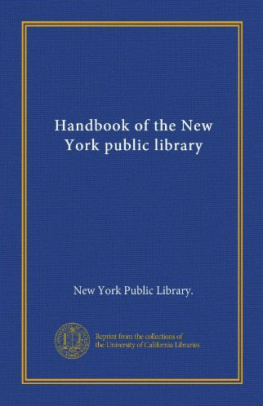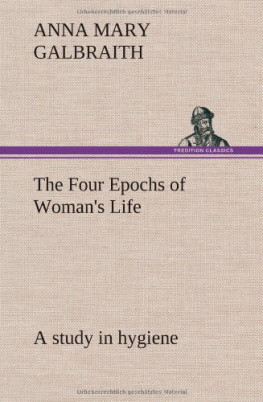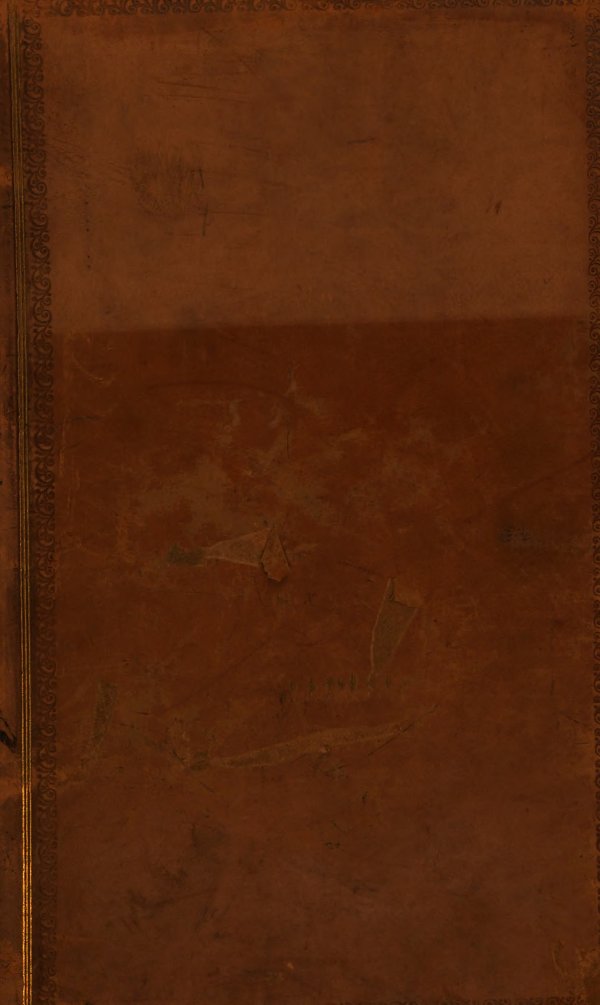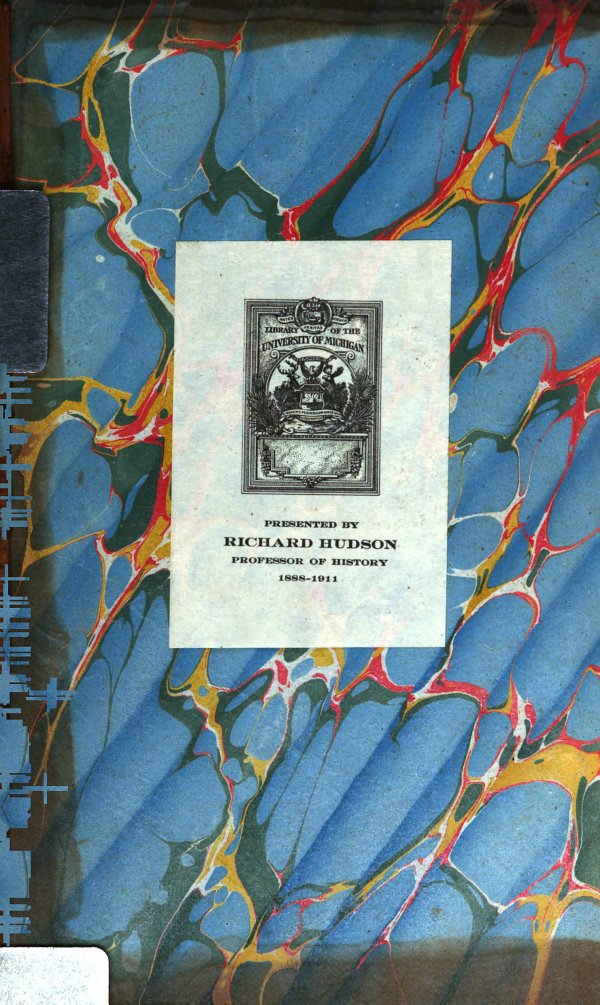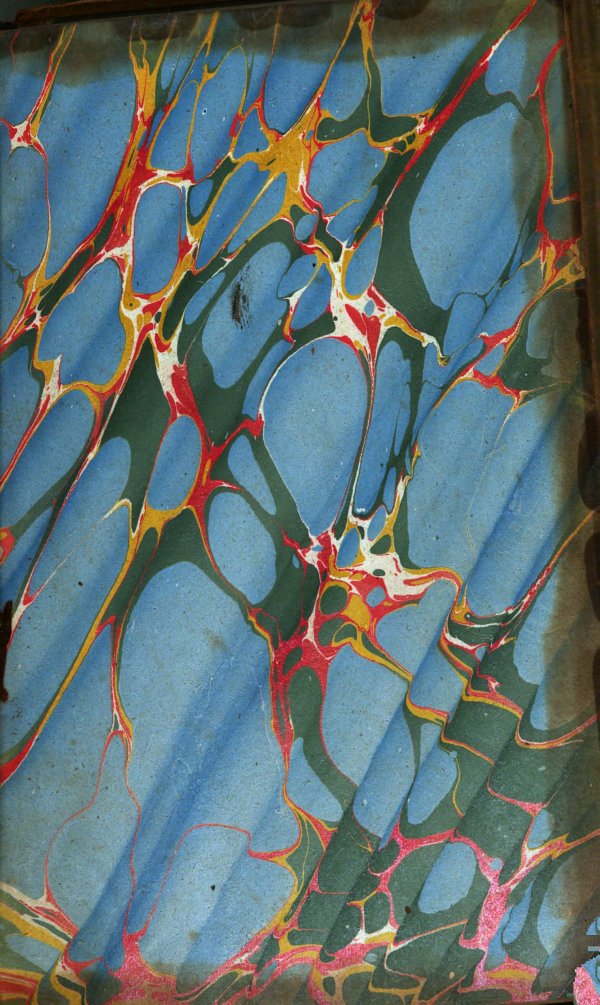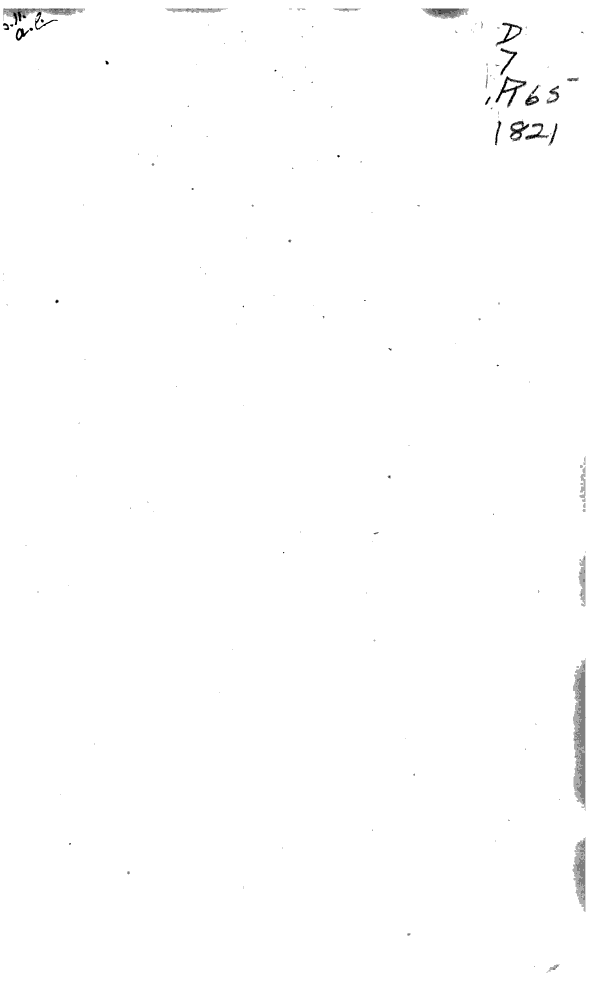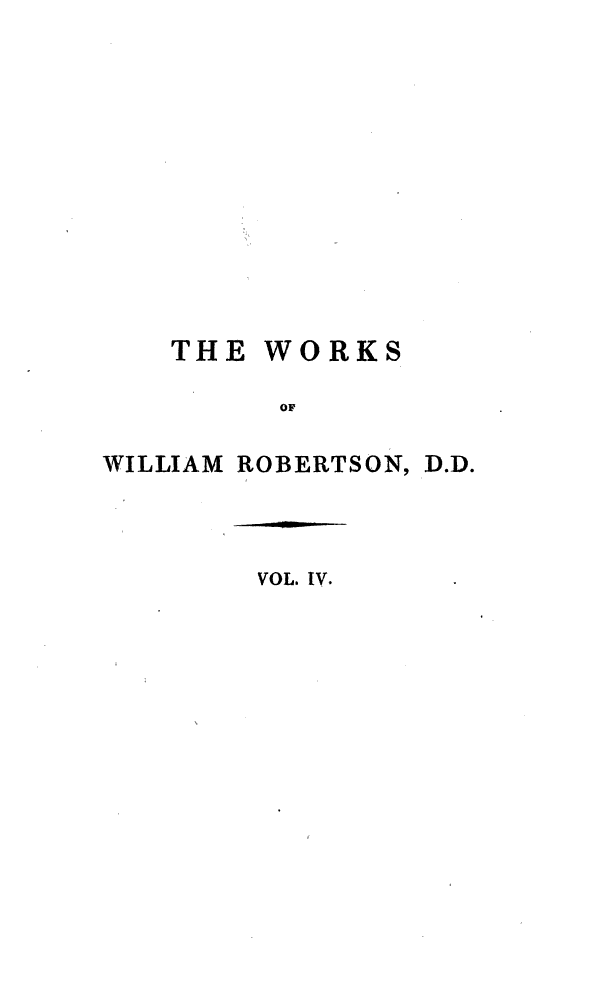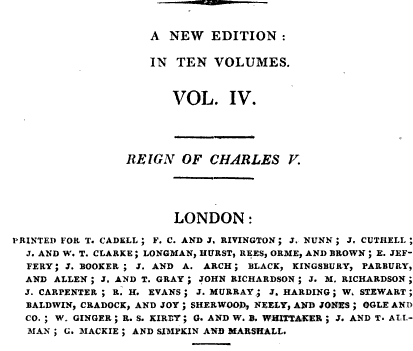The Works of William Robertson, D D
Dugald Stewart
Google Book Search
This is a digital copy of a book that was preserved for generations on library shelves before it was carefully scanned by Google as part of a project to make the world's books discoverable online. See the back of the book for detailed information.
THE
WORKS
OF
WILLIAM ROBERTSON, D.D.
FELLOW OF THE ROYAL SOCIETY, AND PRINCIPAL
OF THE UNIVERSITY, OF EDINBURGH,
HISTORIOGRAPHER TO HIS MAJESTY FOR SCOTLAND,
AND
MEMRER OF THE ROYAL ACADEMY OF HISTORY
AT MADRID.
TO WHICH 19 PREFIXED,
AN ACCOUNT OF HIS LIFE AND WRITINGS,
BY DUGALD STEWART, F.B..S. EDIN.

TO
THE KING.
SIR,
IPRESUME to lay before Your Majesty the History of a Period which, if the abilities of the Writer were equal to the dignity of the subject, would not be unworthy the attention of a Monarch who is no less a Judge than a Patron of Literary Merit.
History claims it as her prerogative to offer instruction to Kings, as well as to their People. What reflections the reign of the Emperor Charlesv. may suggest to Your Majesty, it becomes not me to conjecture. But your subjects cannot observe the various calamities which that monarch's ambition to be distinguished as a Conqueror brought upon his dominions, without recollecting the felicity of their own times, and looking up with gratitude to their Sovereign, who, during the fervour of youth,
Vol. i. b
and amidst the career of victory, possessed such self-command, and maturity of judgement, as to set bounds to his own triumphs, and prefer the blessings of peace to the splendour of military glory.
Posterity will not only celebrate the wisdom of Your Majesty's choice, but will enumerate the many virtues which render Your Reign conspicuous for a sacred regard to all the duties incumbent on the Sovereign of a Free People.
It is our happiness to feel the influence of these Virtues; and to live under the dominion of a Prince, who delights more in promoting the Public Welfare, than in receiving the just Praise of his Royal beneficence. I am,
SIR,
YOUR MAJESTY'S
Most faithful Subject
and most dutiful Servant,
WILLIAM ROBERTSON. PREFACE.
NO period in the history of one's own country can be considered as altogether uninteresting. Such transactions as tend to illustrate the progress of its constitution, laws, or manners, merit the utmost attention. Even remote and minute events are objects of a curiosity, which being natural to the human mind, the gratification of it is attended with pleasure.
But, with respect to the history of foreign States, we must set other bounds to our desire of information. The universal progress of science, during the two last centuries, the art of printing, and other obvious causes, have filled Europe with such a multiplicity of histories, and with such vast collections of historical materials, that the term of human life is too short for the study or even the perusal of them. It is necessary, then, not only for those who are called to conduct the affairs of nations, but for such as inquire and reason concerning them, to remain satisfied with a general knowledge of distant events, and to confine their study of history in detail chiefly to that period, in which, the several States of Europe having become intimately connected, the operations of one power are so felt by all, as to influence their councils, and to regulate their measures.
Some boundary, then, ought to be fixed in order to separate these periods. An aera should be pointed out, prior to which each country, little connected with those around it, may trace its own history apart; after which, the transactions of every considerable nation in Europe become interesting and instructive to all. With this intention I undertook to write the history of the Emperor Charles V. It was during his administration that the powers of Europe were formed into one great political system, in which each took a station, wherein it has since remained with less variation than could have been expected after the shocks occasioned by so many internal revolutions, and so many foreign wars. The great events which happened then, have not hitherto spent their force. The political principles and maxims, then established, still continue to operate. The ideas concerning the balance of power, then introduced or rendered general, still influence the councils of nations.
The age of Charles V. may therefore be considered as the period at which the political state of Europe began to assume a new form. I have endeavoured to render my account of it, an introduction to the history of Europe subsequent to his reign. "While his numerous Biographers describe his personal qualities and actions; while the historians of different countries relate occurrences the consequences of which were local or transient, it hath been my purpose to record only those great transactions in his reign, the effects of which were universal, or continue to be permanent.
As my readers could derive little instruction from such a history of the reign of Charles V. without some information concerning the state of Europe previous to the sixteenth century, my desire of supplying this has produced a preliminary volume, in which I have attempted to point out and to explain the great causes and events to whose operation all the improvements in the political state of Europe, from the subversion of the Roman Empire to the beginning of the sixteenth century, must be ascribed. I have exhibited a view of the progress of society in Europe, not only with respect to interior government, laws and manners, but with respect to the command of the national force requisite in foreign operations; and I have described the political constitution of the principal States in Europe at the time when Charles V. began his reign.




